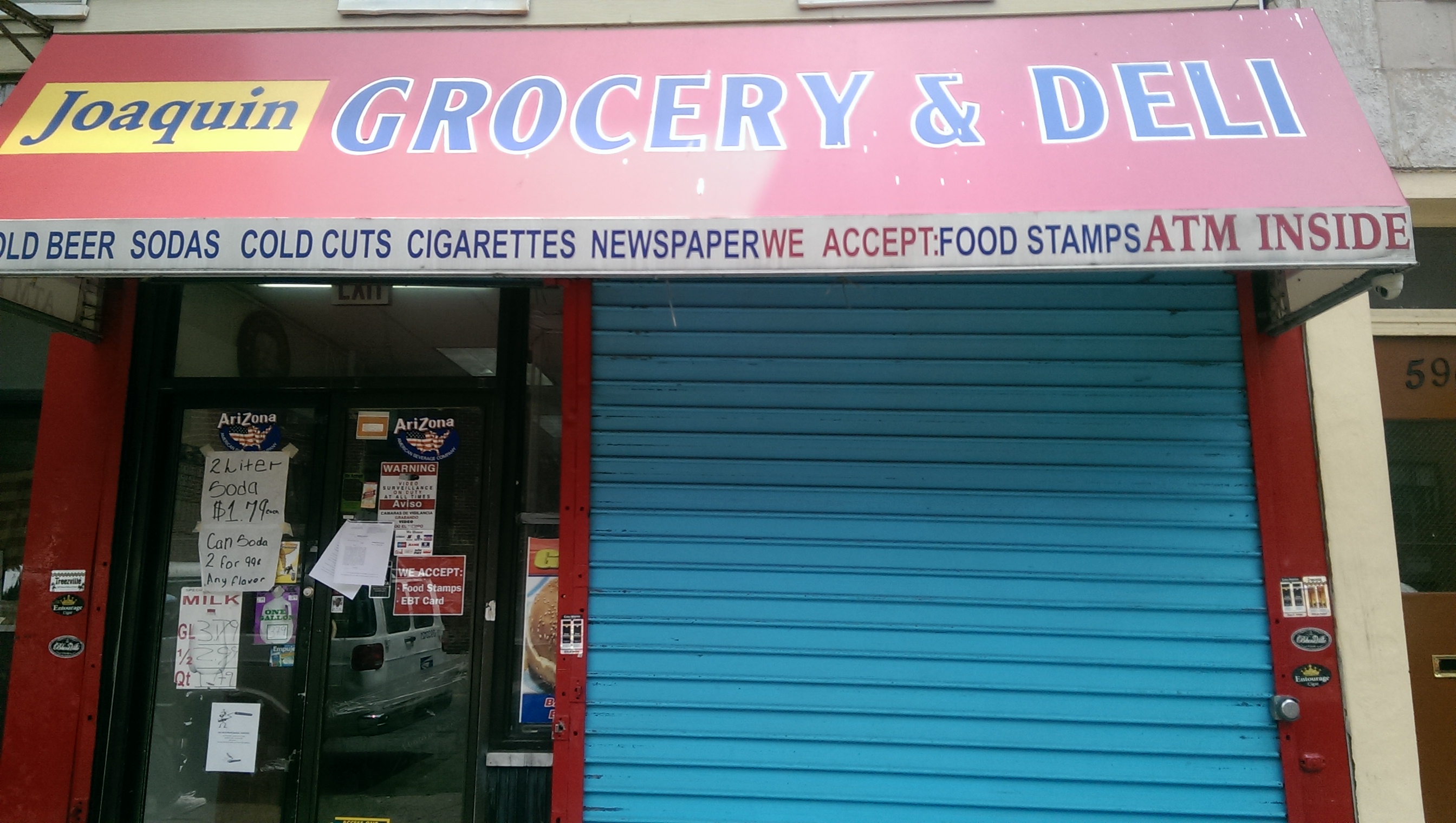
Neighbors say they long suspected bodega was a front
A Melrose bodega has been shut down after the family that owns it and two alleged henchmen were charged Monday with using it as a front for a violent drug diversion ring.
Brothers Carlos Paniagua, Jose Osvaldo Paniagua Jr., their father Jose Osvaldo Paniagua Sr., Joan Torres, and Jose Borgen-Reyes faced a criminal court judge in Manhattan on Tuesday to answer to charges they sold prescription painkillers and HIV medication bought from Medicaid recipients, out of Joaquin Grocery & Deli at 598 Morris Avenue, between East 150th and 151st streets.
Another of the Paniagua brothers, Jose Rafael Paniagua, is also a suspect and remains at large. NYPD and the FBI collaborated on the investigation.The US Attorney’s Violent and Organized Crime Unit and Narcotics Unit is handling the prosecution.
The morning after the arraignment, the bodega was locked and gated halfway. An affidavit taped to the door stated that the store had been closed down.
When passersby approached the store, two men in plain clothes wearing sunglasses abruptly instructed them to leave. When one passerby asked if he could read the affidavit, one of the unidentified men responded, “the affidavit is not for you. It’s for the store’s owner.”
After the two men had left and gated the storefront, an addled and disheveled, middle-aged man smoking a cigarette approached the store, then walked away with a disgruntled look when he realized it was closed.
Moments later, a man clutching a prescription approached and walked away bearing a similarly forlorn expression.
According to the criminal Complaint, the suspects used the bodega’s back room as a drug bazaar where Medicaid recipients would come to sell their addictive and expensive prescription medications such as Oxycontin, Percocet and some HIV medications to the owners for cash.
While the three Paniagua brothers ran the drug business, their father helped oversee the drug sales inside the store, according to the Complaint. Torres and Borgen-Reyes both served as lookouts and armed security.
Shootings were common in and around the store a block north of Lincoln Hospital, as the defendants protected their turf and their profits, the Complaint states. It alleges that a former competitor of the operation was shot twice, including once in the head, while trying to divert Joaquin’s prescription-peddling customers to his own storefront a few doors down in October, 2010.
A longtime resident who lived within a block of the store said the closing of Joaquin has brought the neighborhood “a sigh of relief,” adding “you have no idea how glad we are” that the arrests were made.
Joaquin was once a well-stocked “typical bodega, with a few men and women hanging out, socializing” said the resident, who declined to give his name fearing retaliation. But residents began to suspect illicit activities were being conducted in the store several years ago “when all the merch[andise] disappeared” and violence followed, he added.
Deals for some of the controlled substances took place in a small room behind a door at the back of the store, where Medicaid beneficiaries handed their pill bottles over to the Paniaguas in exchange for cash.
The defendants are said to have used lighter fluid to remove the patient labels from the HIV pill bottles, to help make the bottles appear brand new for re-sale to pharmacies, and they are accused of having amassed large quantities of Oxycontin pills and re-sold them on the street. Search warrants for the suspects were executed at the store and an apartment at 532 Tinton Avenue, which authorities say the defendants used as a stash-house.
Two cars allegedly used by the Paniaguas were searched at each of the two locations. In all, about 1,000 bottles of prescription medication and hundreds of loose pills were taken into custody, along with a machete, and lighter fluid and cotton balls, often used to remove patient labels from the medication bottles for re-sale purposes, along with thousands of dollars in cash.
The defendants each face a maximum of 25 years in prison under federal sentencing guidelines. However, they are presumed innocent unless and until proven guilty.

